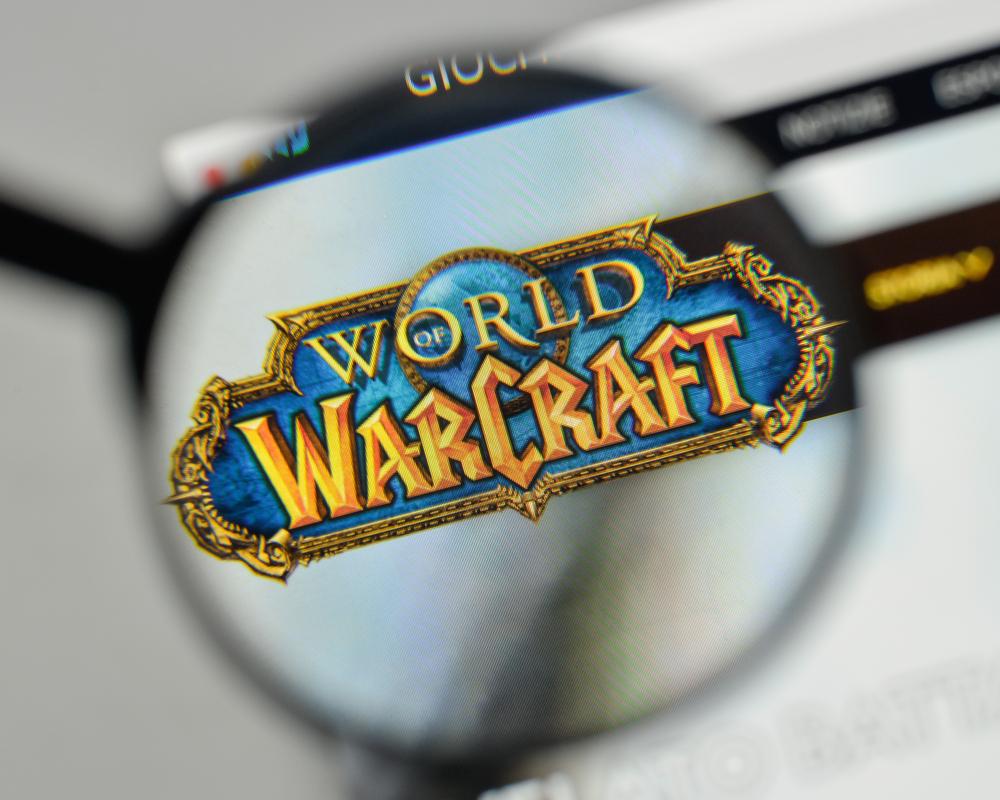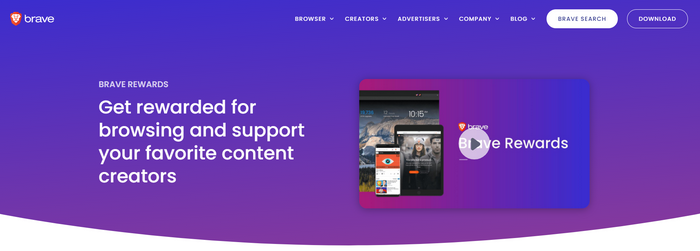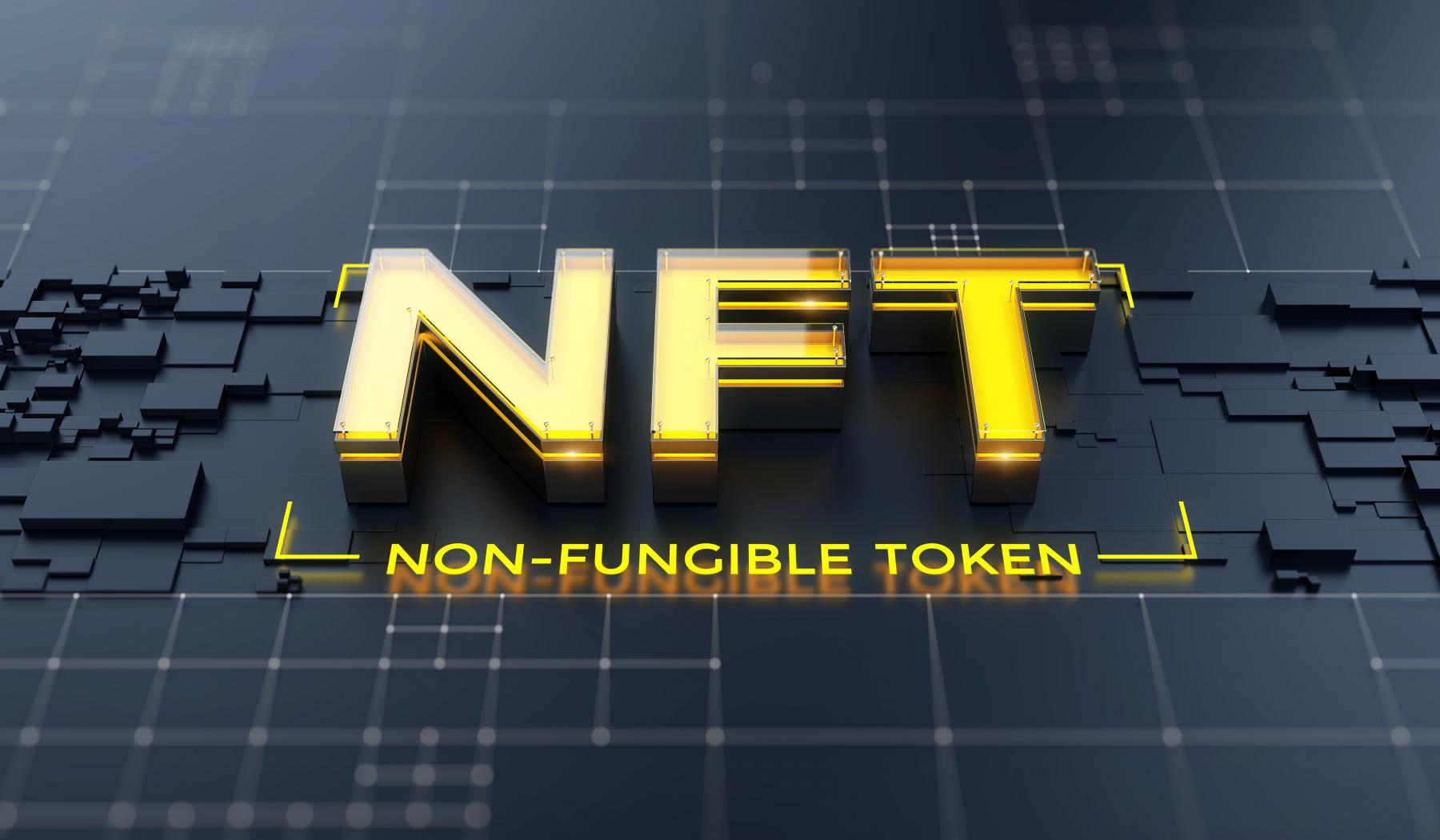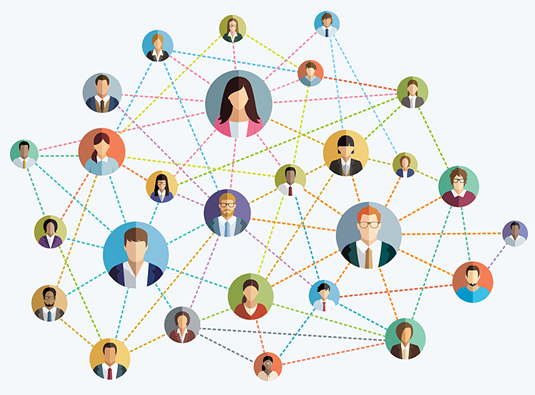DISCLAIMER: This content should not be construed as advice of any sort, including but not limited to legal advice, financial advice, or professional advice.
About the author: On Yavin is a serial entrepreneur, lawyer and angel investor. Over the years he has established and built several successful companies, as well as provided funding and mentorship for many others. In 2017, he joined the blockchain industry with the founding of Cointelligence. The company has provided the industry valuable investment insights, enterprise-grade research, and education. At the start of 2021 he launched Cointelligence Fund, which focuses exclusively on digital assets, where he serves as Managing Partner.
Edited by David Dormaier
--
When I joined the industry more than 4 years ago, I was very excited about the different possibilities found within blockchain and cryptocurrencies. I am a strong advocate and ambassador for cryptocurrencies and not just one specific cryptocurrency but the concept of cryptocurrencies in general. I believe, and have stated repeatedly, that blockchain and cryptocurrencies will not just change the financial markets, but this technology will massively impact other markets as well. This guide will explain how blockchain and cryptocurrencies are currently having an impact on the gaming industry; it is an impact that in my opinion is going to completely disrupt it.
What is play to earn?
Play to earn is a new concept in the gaming world. Essentially, it means that people are playing a game in order to profit real money in the form of cryptocurrencies. Some players play games and earn crypto simply because they enjoy it and the monetary rewards are an added bonus. There is another group of players who have turned play to earn crypto games into their main source of income. Players who may have lost their jobs or players who no longer enjoyed the jobs they had are able to turn to play to earn (P2E) because they provide legitimate and lucrative sources of income.
In some play to earn crypto games, players can start playing a game for free without paying for it. While in other cases players will need to pay to play i.e. they will need to pay for the character they want to use in game, or perhaps they may want to pay for specific items they want to use in game (players will pick these items because they may make them more powerful or have special abilities). The main concept is that players play games to earn crypto, and their earning potential will increase or decrease depending on the amount of time a player is willing to spend playing the games. Likewise, as a player’s skill improves so will her/his potential profits increase. With play to earn crypto games the more you play and the better you get at the game the great financial rewards you can earn.
 It is important to note that players earning real money playing video games is not unique to cryptocurrencies or blockchains nor is it a new concept. World of Warcraft (WOW), which was and still is my favorite PC game, is one example of how players earn money playing a game. Long before people were able to earn crypto playing games, players in World of Warcraft were and still are “farming in game gold” or offering different in game services to other players for real life money (fiat or crypto). So how is this different from the new play to earn (P2E) concept? There are two main differences: 1. The players who play traditional games are doing it against the game’s rules.
It is important to note that players earning real money playing video games is not unique to cryptocurrencies or blockchains nor is it a new concept. World of Warcraft (WOW), which was and still is my favorite PC game, is one example of how players earn money playing a game. Long before people were able to earn crypto playing games, players in World of Warcraft were and still are “farming in game gold” or offering different in game services to other players for real life money (fiat or crypto). So how is this different from the new play to earn (P2E) concept? There are two main differences: 1. The players who play traditional games are doing it against the game’s rules.
2. The players are selling something they don't really own because playing a traditional game means everything the player earns in game belongs to the company who owns the game and is not owned by the player and that's one of the significant changes with play to earn which I will explain now.
Your attention and time should be rewarded
One of the things that got me so excited about cryptocurrencies is the new possibilities of rewarding people for their time and effort. For example, let's take the advertising industry. When we are using different websites, and platforms we see ads, they are everywhere. Ask yourself, who mostly benefits from these ads? Answer: the ad platform. For example, Google is the world’s biggest search engine, and it is the biggest ad platform as well and most of the revenues for the ads are going to Google and a small amount goes to the publishers. With cryptocurrencies everything is changing, there are crypto startups building search engines and browsers. These different startups are trying to change the way revsharing works, so that when people are using a search engine or a browser, the revenue generated will be split amongst all participants who created the value in the first place. These startups would make it so that the publishers themselves should profit much more than what they are currently profiting. They would no longer get just a tiny bit of the revshare while watching the bulk of the revenues going to the ad platforms such as Google. Now the time has come for players to be rewarded for playing games.

How does play to earn (P2E) actually work?

The characters and the in-game items are created as NFTs. In short NFT stands for Non-Fungible-Token and it represents a unit of data stored on the blockchain. Non-Fungible means it cannot be duplicated. Furthermore, an NFT represents intellectual property in the form of digital content. So, if someone creates an NFT they are securing their intellectual property so that even if tech-wise it's possible to duplicate it, it will not be possible from an intellectual property perspective. It's not just about art or music or movies, it's also about turning unique tweets into NFTs and so much more. Because NFTs can be traded this will create huge secondary markets. An NFT can represent a physical asset or a virtual asset. One of the reasons the play to earn (GameFi) concept was created and is growing so rapidly is thanks to the creation of NFTs because they enable game developers to enable players to own the “in-game assets.” Usually in the initial stages of creating the game the developers are creating the NFTs themselves and in some cases they continue to create more NFTs but in other cases the NFTs are being created by the players themselves. Click here to read more about NFTs.
The Metaverse
We are spending more and more time in the virtual world than we are in the “real” physical world. I am not just referring to playing games. Working virtually is normal for most people these days. We are connecting with others for a variety of reasons, primarily using online software and applications. As the technology is improving in areas like VR and AR it might be a matter of time before we will be spending all of our time or most of it in the metaverse. The play to earn crypto concept is not just about gaming and not just about making money from playing games, it's another step on the way to becoming more virtual as the connection between the virtual world and real money becomes stronger.
 Virtual worlds are not a new concept. As early as 2003 people were turning to virtual worlds such as Second Life to express themselves and meet with their friends from all over the world. Just like in the “real world” people will meet up with the friends in Second Life and virtually listen to music together, go to digital clubs, essentially they are using this platform to expand and enhance their lives. One more popular virtual world is a game called Roblox.
Virtual worlds are not a new concept. As early as 2003 people were turning to virtual worlds such as Second Life to express themselves and meet with their friends from all over the world. Just like in the “real world” people will meet up with the friends in Second Life and virtually listen to music together, go to digital clubs, essentially they are using this platform to expand and enhance their lives. One more popular virtual world is a game called Roblox.
In this virtual world users are able to build their own games and host them on the Roblox servers allowing the Roblox community to play user created games. Most recently, the Covid-19 pandemic has caused virtual worlds such as Second Life and Roblox to increase in popularity as more and more people have been confined to their homes.
Now onto the subject of combining virtual worlds with blockchain technology. It is easier than ever for most people to create NFTs, than trade their NFTs on marketplaces that already exist. The coming together of all these technologies has the potential to be the biggest revolution for the gaming industry to date! For example, one of the most interesting things that is happening in the new blockchain based games is the option of buying lands. Wouldn't you like to own a piece of land in the middle of Manhattan or at one of the most expensive locations in London? - The new land plots in some of the games that are already being sold might become the next Manhattan or London! Critics would say buying virtual land is madness but I bet that's what they told people who bought stocks in Apple or Amazon in their early years?
Some games are building whole ecosystems around these plots. For example, in some of the games players can fight and defend their lands similar to the way knights and lords defended the king’s lands. With virtual gaming you can become your own Alexander the Great but with an infinite number of virtual worlds that could be created, you might not ever have to weep because you have conquered them all! In some ecosystems players would be able to improve the land or build on top of the land, similar to investors investing in buildings or houses built on lands in the real physical world. These ecosystems will allow players to be able to rent these properties or let other players use them for different things.
In some cases there is already a connection between the land and the characters the users are playing in the game. Much like a real world homeowner or land developer, the users, through their game characters, can make changes to improve their land by taking different actions.
Currently, there is a platform building the future workplace. This virtual space will allow people to create their avatars and offices in the metaverse. As people are already connecting virtually for meetings, the next step is to include everything around the office in the virtual space. Businesses will be able to manage a virtual office but everything in the platform will be owned by the participants and not by the company who owns the platform, in essence it could allow businesses to cut leasing and property rental costs because they will be able to own a space for employees to work together but not from one geographic region.
There are other platforms being built that will help manage the assets from these metaverses. These asset management platforms are working to enable users to transfer their characters and items from one platform to another platform. Other ventures are starting to offer trading mechanisms that will optimize and improve the value of different items through the speed of transactions and revenues one can generate from investing and trading these new assets. So even if you are not a gamer and you don't see yourself playing a new type of game, it is really interesting to explore the different investment and trading opportunities in these new virtual worlds (this is NOT financial advice), as mentioned before you can create characters or items in game, improve them and then sell them on one of the NFT marketplaces but you will be able to do so much more with these characters or items at later stages.
The Play To Earn (GameFi) Concept Is Already Changing Lives!

You might tell yourself this is science fiction, it can't be real or it's too good to be true but the new play to earn (GameFi) concept is already changing lives as you can see in this documentary. The documentary is explaining this new concept and showing examples of people who stopped working their previous job or because they couldn't find a job thanks to the COVID-19 crisis.
They turned to games to earn crypto and now they are making more money than they did in any previous job they had. The documentary also explains that the concept of Scholarship was started because players needed to buy the characters required to play the game but didn't have enough funds to make the purchase of the in-game characters they needed to play the game that would allow them to profit real money. As a result, a new type of sponsorship was created and people and entities who can afford buying the characters bought the characters and allowed players to use them for a revshare between them, another new business model created in the new virtual world.
Play to earn allows workers to no longer be confined to a specific location for their employment. During Covid-19, the play to earn model provided a community for people who were forced to physically stay away from one another, while also providing a means to an income for people who were simultaneously displaced from their jobs.
Criticism
Some are criticizing the fact that players or investors can pay to play. This criticism is not new, it started when the companies that owned gaming platforms decided to allow players to buy in-game items which made them more powerful. This started many years ago but now it's becoming a bigger problem as it's no longer about becoming a stronger player, rather it’s about becoming a stronger player who can profit more real life money. There are game platforms considering this issue and trying to find ways to resolve it.
Another type of criticism towards the P2E concept is the claim that this entire new eco-system and marketplaces are just another type of Ponzi schemes making people want to join the ecosystem asking them to pay a big amount of money in order to join it while making the previous investors richer and at some point the bubble will explode.
It's all about the community
It is a well known fact that in the crypto industry projects are successful because of the communities that back them. To be fair, this is not a phenomenon that is only relevant for crypto but it holds true for other industries as well. All that being said, community support is more significant for the success of projects in the crypto industry. For example, I have seen projects raising millions even tens of millions worth of USD just based on the community of supporters of a project. In some cases community members of a specific project have been around supporting the project from its inception and it is exciting to see how dedicated some of the community members can be.
In the gaming industry there are different types of communities. There are games offering specific quests to be completed with a group of other players to achieve goals. Having success through completing quests in any game is exciting, but it is more exciting to complete a quest in a group. There is something powerful that happens when 5 or 10 people come together and combine their gaming strengths and skills to complete a quest. Just as the players themselves bring different skills and strengths to a group, so also, the characters the players use in the game bring specific abilities and skills that are vital to a group’s success. It is not necessarily easy to organize a group. Groups must be organized with specific skills taken into consideration, because each group needs specific characters that can perform specific roles in order to complete the quest. If a group does not have the right characters with the right skills then the group will not be able to complete their quest.
Sometimes players who work together to complete quests will become in-game friends and sometimes they become friends in real life. In my opinion, the highest level of an in-game community is a Guild. When players are forming a guild to complete quests, go to battle in dungeons, or raid dungeons a higher level of friendship can be created. This level of friendship between players is similar to friendships created between people traveling together for a significant period of time or soldiers serving in the same squad in the army.
The possibilities of combining the crypto and in-game communities are incredible and I am sure we will see different types of these combinations in the future but there is already one type of community that some projects are exploring which is the DAO mechanism.
The DAO
 DAO stands for Decentralized Autonomous Organization. - a DAO should be decentralized and automated, based on open source code, without a central leadership or the usual management structure used for companies or other entities, each action or vote is represented by some form of transaction on the Blockchain.
DAO stands for Decentralized Autonomous Organization. - a DAO should be decentralized and automated, based on open source code, without a central leadership or the usual management structure used for companies or other entities, each action or vote is represented by some form of transaction on the Blockchain.
There are, play to earn crypto, models that have built their projects based on a DAO and there are projects that announced they are planning to change their structure at some point and make it a DAO.
This is extremely exciting. If a game or an ecosystem that is made up of a game and more, is based on a DAO, it means that not only will the players be able to own the characters and in-game items, but the players themselves will determine the future of the game in all its aspects.
Philosophically, play to earn crypto games are built on the fundamental need for a place that is available to everyone and owned by no one in particular.
Criticism
The concept of decentralization is not proven yet. There are many industry leaders claiming no other coin or token, besides Bitcoin, has proven itself to be truly decentralized. These critics argue that other coins or tokens are pretending to be decentralized. DAO is one of the options for a decentralized organization that has not yet proven itself, not because it’s not possible but because it hasn't been tested yet.
There are crypto projects faking communities to make mom and pop investors decide to invest in these projects, for example crypto projects buying twitter followers, Youtube views, using fake Telegram users and many other techniques to make potential investors think the project is popular and supported by a big community but in fact most of it or all of it is fake so please be cautious if you are considering investing in a project.
Final thoughts
I believe play to earn crypto games are the future of the gaming industry - we decided at Cointelligence.fund to focus our investments in play to earn games so if you are a founder of a play to earn project please email me your deck to [email protected] - thank you for reading!
--
About the author: On Yavin is a serial entrepreneur, lawyer and angel investor. Over the years he has established and built several successful companies, as well as provided funding and mentorship for many others. In 2017, he joined the blockchain industry with the founding of Cointelligence. The company has provided the industry valuable investment insights, enterprise-grade research, and education. At the start of 2021 he launched Cointelligence Fund, which focuses exclusively on digital assets, where he serves as Managing Partner.
Cointelligence Fund most recent investments:
| Snook | playsnook.com |
| Space SIP | sip.space |
| Cradles | cradles.io |
| Decimated | decimated.net |
| OP Games | opgames.org |
| Moonscape | moonscapegame.com |
| Moonray | moonray.game |
| Niftify | niftify.io |
| VCoin |
therealvcoin.com |
| The Wasted Lands | thewastedlands.io |
| Rebel Bots | rebelbots.com |
| Time Raiders |
timeraiders.io |
| Ethereum Towers | ethereumtowers.com |
| MegaFans | megafans.com |
| CreoEngine | creoengine.com |
Edited by David Dormaier
DISCLAIMER: This content should not be construed as advice of any sort, including but not limited to legal advice, financial advice, or professional advice.

